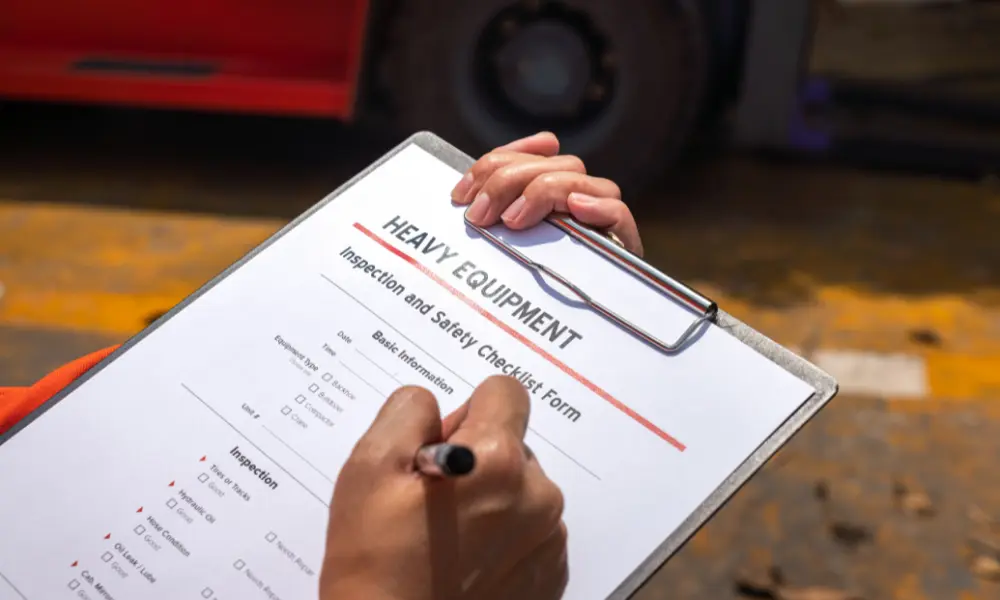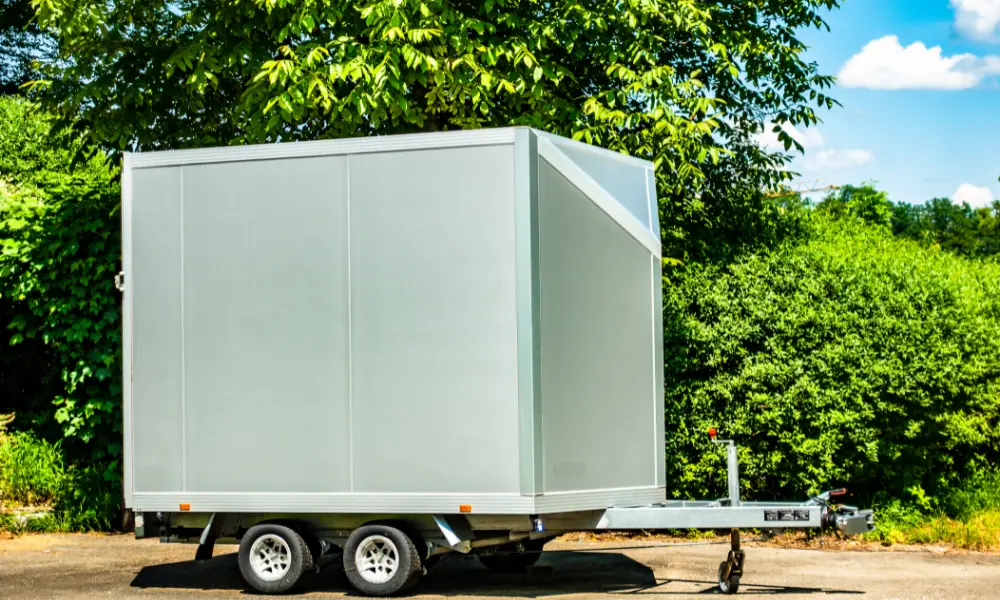Navigating Missouri’s vehicle inspection requirements can be confusing, especially with all the regulations to keep track of. If you’re wondering what steps you need to take to ensure your vehicle complies, you’ve come to the right place. From understanding the exemptions to knowing the fees involved, this guide has you covered. Dive in to find all the details you need and make your registration process easier.
Overview of Missouri Vehicle Inspection
Missouri requires regular vehicle inspections to ensure safety and meet emissions standards. These inspections help keep the roads safe and the air clean.
Purpose of Inspection
The main purpose of vehicle inspections in Missouri is to confirm that your car meets safety standards and emissions requirements. This keeps vehicles street legal and running efficiently.
Safety inspections check essential parts like brakes, lights, and tires. If a part doesn’t meet standards, it must be fixed for the vehicle to pass. Emissions testing, on the other hand, focuses on reducing pollution. Not all counties in Missouri require emissions testing, but areas like St. Louis and its surroundings do.
Compliance with these inspections makes sure your vehicle is safe to drive and operates within environmental guidelines.
Types of Inspections
There are two main types of vehicle inspections in Missouri: safety inspections and emissions tests.
Safety inspections are mandatory statewide. They involve checking the vehicle’s brakes, lights, tires, and other crucial components. If your car passes, you’ll receive a certificate valid for 60 days.
Emissions tests are only required in certain areas, specifically around St. Louis. Your car will be tested for pollutants like carbon monoxide. This helps improve air quality and is crucial in higher population areas.
Some vehicles, such as new cars under five years old, might be exempt from these inspections. Always check if your vehicle qualifies for any exemptions to avoid unnecessary trips.
Inspection Requirements and Process
To complete your vehicle inspection in Missouri, you need the right documents, follow a clear process, and ensure your vehicle meets specific criteria. These steps help make sure that all vehicles on the road are safe and meet necessary standards.
Documents Needed for Inspection
When you go for your vehicle inspection, make sure you bring these important documents:
- Proof of Insurance: Your insurance card needs to be up-to-date.
- Vehicle Registration: Bring your current registration or renewal notice.
- Bill of Sale: If you recently bought the vehicle, you’ll need the bill of sale.
- Any Inspection Notices: Sometimes the DMV will send specific notices about required inspections.
Keeping these documents on hand will make the inspection process smoother and quicker.
Steps in the Inspection Process
The vehicle inspection process involves several steps to ensure your vehicle is roadworthy. First, you will need to schedule an appointment at a licensed inspection station. Upon arrival, you will submit the required documents and your vehicle will be examined.
Criteria for Passing the Inspection
Your vehicle must meet specific safety and emissions standards. Here are key areas that will be checked:
- Brakes: Ensure the brake pedal and warning lights function correctly.
- Lights: All lights, including headlights, signal lights, and brake lights, must be operational.
- Mirrors and Glass: Mirrors should be intact and the windshield undamaged.
- Seat Belts: Seat belts should be in place and functioning.
- Wipers: Windshield wipers need to be in good condition.
Meeting these criteria is essential to pass the inspection and keep your vehicle registration up to date in Missouri.
By following these guidelines and ensuring you meet all inspection requirements, you can maintain a safe and legal vehicle on Missouri roads.
Registration and Inspection Connection
In Missouri, the relationship between your vehicle’s inspection and registration is crucial. Ensuring your car passes the safety and emissions checks is necessary for renewing your vehicle registration.
How Inspection Affects Registration
When it’s time to renew your registration, you need a valid inspection certificate. This is important because Missouri law requires a safety inspection for most vehicles. Your renewal notice will indicate if an inspection is needed.
Failing to pass the inspection means you can’t renew your registration. This can cause issues such as fines. Inspections cover checking brakes, lights, and other key equipment. To avoid problems, have your car inspected well before your registration expires.
Dealing with Registration Renewal
You get a notice in the mail reminding you to renew your vehicle registration. If you need an inspection, this notice will tell you. If unsure, you can contact the Missouri Vehicle Inspection Unit. This helps you know exactly what’s required.
Getting your inspection done early can save headaches. If your car fails, this gives you time to fix issues without delaying your registration. Contacting the Missouri Vehicle Inspection office at (573) 526-6132 is a good way to confirm details if needed. Use tools like the Missouri DMV website for guidance.
Inspection Exemptions and Special Cases
In Missouri, several scenarios allow your vehicle to be exempt from certain inspection requirements. Knowing the exemption criteria and understanding the process for applying can save you time and effort.
Exemption Criteria
Your vehicle may be exempt from safety inspections if it meets certain conditions. For example, vehicles manufactured in the last five years do not need a safety inspection, even if ownership changes. This includes vehicles with out-of-state titles. Additionally, cars that are less than 10 years old and have under 150,000 miles at the time of registration or renewal might not need an inspection.
Emission testing exemptions depend on where you live. If your residence is outside specific Missouri counties that require smog checks, you are free from the emissions test requirement. Motorcycles, historic vehicles, and certain diesel-powered vehicles are also often exempt.
Process for Applying for Exemptions
To apply for an inspection exemption in Missouri, you may need to provide documentation that proves your vehicle meets the criteria. This could include registration papers, title documents, and odometer readings. Contact the Missouri Department of Revenue or your local DMV for specific forms and detailed instructions.
If your situation is unique or requires special consideration, contacting the Vehicle Inspection Unit at (573) 526-6132 can provide guidance. Calling this number helps you understand any other paperwork you might need. For emissions testing concerns, especially in non-attainment areas, you can reach out to the Troop C Motor Vehicle Inspection Office at (314) 416-2180, Ext: 4357/4358.
Being aware of these details ensures you stay compliant with Missouri’s vehicle inspection laws without unnecessary hassle.
Locating Inspection Stations
To ensure your vehicle meets Missouri safety standards, you need to find an authorized inspection station. There are specific criteria and resources to help you locate the best options.
Criteria for Authorized Inspection Places
An authorized inspection place in Missouri must meet certain standards. Each inspection station should have an enclosed area that is large enough to accommodate your vehicle. This is crucial for both safety and accuracy.
Class A and D stations must be able to handle commercial vehicles, while Class B stations handle smaller vehicles. Make sure the station is certified; only authorized places can issue valid certificates. They should also follow Missouri State Highway Patrol regulations for equipment and operation.
Knowing these requirements helps you choose a reliable inspection station. Ensuring the station meets these criteria can save you time and trouble later.
Finding Nearby Inspection Locations
To find an inspection station near you, start by visiting the Missouri State Highway Patrol’s website. They provide an updated list of authorized stations. This list changes often, so always check for the most current information.
If you live in a large city like St. Louis, you’ll find many options. Use online tools to search by your ZIP code or city name. Websites often include maps and contact information, making it easy to plan your visit.
Another resource is the Missouri Department of Revenue’s Motor Vehicle Division. They can tell you if your vehicle needs an inspection and where to go.
Using these resources ensures you find a convenient and certified location for your vehicle inspection.
Motorcycles and Special Vehicles
In Missouri, there are specific requirements for inspecting motorcycles and other special types of vehicles. Knowing these rules can help you keep your bike or special vehicle road-ready and legal.
Inspection for Motorcycles
When you take your motorcycle, such as a Kawasaki Concours or a KTM 450 EXC, for an inspection in Missouri, there are several key areas to be checked. The inspection checklist includes items like:
- Horn
- Tires, wheels, and rims
- Frame, fork, steering head bearings
- Exhaust system and muffler
- Shock absorbers
Ensuring these parts are in good shape helps you meet the inspection standards.
For District 14 AMA riders, like owners of Husqvarna 250WR or Honda CT90 Trail 90, regular checks are crucial. You want to avoid any surprises and ensure a smooth process when getting your inspection certificate. Be sure your motorcycle’s windshield, if equipped, and fuel system components are also in good working order.
Special Vehicle Considerations
Special vehicles have unique inspection requirements in Missouri. Motor tricycles and autocycles, for instance, are inspected at Class C stations, where the area must be level and made of hard material like asphalt or concrete.
If you have a special vehicle such as a Honda CT200 Trail 90 or Suzuki RV90, you need to ensure the inspection station is qualified to handle these types of vehicles. Always check their inspection regulations updates for any new requirements.
Owning vehicles like ’13 450xcw, KTM 400 EXC, or similar, means paying special attention to any modifications you might have done. All modifications must comply with Missouri’s safety standards to get your inspection certificate renewed without any issues.
Understanding Missouri Inspection Laws
In Missouri, vehicle inspections are key to ensuring road safety. Complying with these laws is crucial to avoid penalties and ensure your vehicle is roadworthy.
Repercussions of Inspection Non-Compliance
Failing to comply with Missouri’s vehicle inspection laws can lead to various penalties. If you miss an inspection, you could receive a ticket costing anywhere from $75 to $150 depending on where you are in the state.
Not having your vehicle inspected regularly could also lead to more severe consequences. Law enforcement officers may order a safety inspection if they find your vehicle is not compliant during a traffic stop. In the event of a vehicle accident, failing to have completed the required inspections could affect your insurance claims.
Worst-case scenarios can include impounding your vehicle until it passes inspection, which means higher fees and inconvenience. It’s essential to stay updated with inspection schedules to avoid these issues.
Legal Framework of Vehicle Inspections
Missouri law mandates that various parts of your vehicle must be functional and safe. This includes brakes, lights, mirrors, seat belts, and tires, among other items. Specifically, Missouri law requires that license plates be securely fastened to the vehicle and be clean and visible at all times.
Inspection stations must be housed in buildings that can accommodate the type of vehicle being inspected. For instance, Class A and D stations need to be large enough to handle commercial vehicles. This ensures all vehicles, from small cars to big trucks, are checked accurately.
Maintaining up-to-date inspections isn’t just about avoiding fines; it’s also about keeping you and others safe on the road. Regular checks lessen the likelihood of vehicle breakdowns and accidents, providing peace of mind to you as a driver.















